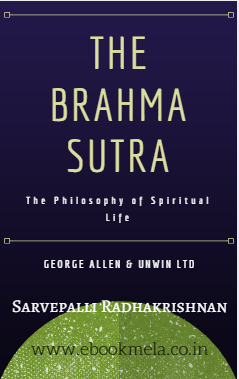Carvaka Philosophy Pdf Books

• • • Charvaka (: Cārvāka), originally known as Lokāyata and Bṛhaspatya, is the ancient school of Indian. Charvaka holds,, and conditional as proper sources of knowledge, embraces and rejects,, and. Is credited as the forerunner of the Charvakas, while Brihaspati is usually referred to as the founder of Charvaka or Lokāyata philosophy.
Known to the students of Indian Philosophy as a Purva Paksa in almost all the systems. 'Lokayata' is explained by Wilson1as 'the system o f atheistical philosophy taught by Carvaka'. Petersburg Dictionary2 explains it as 'Materialism'. Is a text book of the vitandas (sophists) 'Lokayatam, Vuccati vitandavada. Carvaka Philosophy Pdf Books The Internet Encyclopedia of Philosophy (IEP) (ISSN 2161-0002) was founded in 1995 to provide open access to detailed, scholarly information on key topics and. Free yoga papers, essays, and research papers. Una branca d'aquesta doctrina esdevingu. Avui en dia el budisme tamb. Es calcula que hi ha entre 2. Un profeta va vaticinar que esdevindria un gran l. BOOK REVIEW Carvaka Philosophy: A New Look Subhendu Sarkar The Carvaka/Lokayata has a special place in the history of Indian philosophy. Contending against the pro.
Much of the primary literature of Charvaka, the (ca. 600 BCE), are missing or lost. Its teachings have been compiled from historic secondary literature such as those found in the,, and the as well as in the dialogues of and from. One of the widely studied principles of Charvaka philosophy was its rejection of as a means to establish valid, universal knowledge, and truths. In other words, the Charvaka epistemology states that whenever one infers a truth from a set of observations or truths, one must acknowledge doubt; inferred knowledge is conditional. Charvaka is categorized as a school of. It is considered an example of atheistic schools in the.
Mk4 Game Free Download Kickass. • • • Charvaka believed that there was nothing wrong with pleasure. Since it is impossible to have pleasure without pain, Charvaka thought that wisdom lay in enjoying pleasure and avoiding pain as far as possible.
Unlike many of the Indian philosophies of the time, Charvaka did not believe in austerities or rejecting pleasure out of fear of pain and held such reasoning to be foolish. The Sarvasiddhanta Samgraha states the Charvaka position on pleasure and hedonism as follows, The enjoyment of heaven lies in eating delicious food, keeping company of young women, using fine clothes, perfumes, garlands, sandal paste.
While is death which is cessation of life-breath. The wise therefore ought not to take pains on account of moksha. A fool wears himself out by penances and fasts. Chastity and other such ordinances are laid down by clever weaklings. Main article: There was no continuity in the Charvaka tradition after the 12th century. Whatever is written on Charvaka post this is based on second-hand knowledge, learned from preceptors to disciples and no independent works on Charvaka philosophy can be found. Chatterjee and Datta explain that our understanding of Charvaka philosophy is fragmentary, based largely on criticism of its ideas by other schools, and that it is not a living tradition: 'Though materialism in some form or other has always been present in India, and occasional references are found in the Vedas, the Buddhistic literature, the Epics, as well as in the later philosophical works we do not find any systematic work on materialism, nor any organised school of followers as the other philosophical schools possess.
Insanity The Asylum Workout Free Download more. But almost every work of the other schools states, for refutation, the materialistic views. Our knowledge of Indian materialism is chiefly based on these.' Controversy on reliability of sources [ ] Bhattacharya states that the claims against Charvaka of, lack of any morality and ethics and disregard for spirituality is from texts of competing religious philosophies (Buddhism, Jainism and Hinduism).